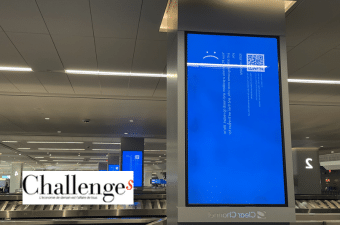Increase in VPN requests: a favourable geopolitical context
In recent years, the use of VPNs has grown dramatically around the world. This trend is particularly noticeable in countries where governments are authoritarian and where freedom of expression and access to information are limited. Citizens of countries such as China, Iran and Russia are turning to VPN services in droves to bypass government restrictions and access geo-blocked content. But more and more companies and individuals are also choosing to use VPNs to protect their privacy and personal data.
While in 2022 the global VPN market was estimated to be worth about US$45 billion, it is expected to grow dramatically in the coming years, reaching nearly US$138 billion by 2030, according to Global Strategy Business Report estimates.
VPNs to bypass censorship: the case of authoritarian countries
The use of VPN services is first and foremost particularly popular in countries where, as we mentioned, authoritarian regimes in place monitor and impose censorship on Internet networks. China is the most obvious example of a country where Internet access is strictly controlled by the government. In fact, according to the 2021 Freedom on the Net report and for the fifth year in a row, China is ranked among the bottom in Internet freedom. Most of the websites we westerners use, such as Google, Facebook, Youtube, Twitter or WhatsApp are all partially or completely blocked in China. Only the use of a VPN allows access to Gmail for example. Chinese citizens therefore massively use VPN services to bypass government restrictions and access foreign websites. In 2020, about one third of Chinese Internet users were using a VPN, according to GlobalWebIndex. This massive use of VPNs is a phenomenon that has important geopolitical implications as it allows a portion of the civilian population to bypass government censorship. Secure messaging applications, usually censored, become accessible thanks to VPNs. From then on, the population can bypass government restrictions and communicate discreetly. This is precisely what happened in Myanmar during the recent political crisis, where protesters broadcast calls for mobilization by circumventing military censorship with VPNs.
Differentiated use of VPN services by country
It is worth noting that, according to GlobalWebIndex, in the majority of Asian countries, the main reason for using a VPN service is to access better entertainment content. Although the numbers are most consistent in Asian countries, the stated motivation is the same for most VPN users in the following countries: South Africa, Romania, Ireland, Egypt, Brazil, Saudi Arabia, Poland, New Zealand, Russia, Australia, Japan, USA…
In the following countries, the main motivation stated by VPN users is to remain anonymous when surfing the Internet: France, Austria, Germany, Canada, Portugal, United Kingdom, Switzerland and Denmark. These are mainly democratic countries and respectful of the rule of law where the question of Internet censorship does not arise.
Data security: the VPN, a new must-have
Thus, privacy and data security is the other main reason why companies and individuals use a VPN. Indeed, citizens are increasingly aware of data collection without their knowledge and intrusions in their private life. In addition, it is worth mentioning that in democratic countries, the rise of extremism and the increase of terrorist acts sometimes imply a more active surveillance of certain websites and exchanges by intelligence services. Some citizens wish to protect the confidentiality of their communications and their online activity. VPNs appear to be an effective solution to guarantee this privacy and online data security more generally. In addition, governments and businesses around the world have also strengthened their online security measures to protect their sensitive information and data from cyberattacks.
Protection of secrets: intellectual property and economic intelligence
Ultimately, there are also real needs for companies to protect their intellectual property and secrets (innovations, acquisitions, LBOs, etc). To protect their sensitive information and data against cyber attacks, many companies around the world use VPNs. These allow them to hide their IP address and encrypt their exchanges, thus reinforcing the confidentiality and cybersecurity of their users. This is essential in a geopolitical context where economic intelligence is fierce and where cyber attacks can cause considerable damage. Obviously the use of a VPN is not enough to guarantee the safety of your company’s information systems.
💡 To learn more about the increase in VPN demand, UBCOM shared a graph reporting the countries with the highest peak in VPN demand in 2022.
In sum, the use of VPNs has important geopolitical implications in countries where freedom of expression and access to information are restricted. They allow citizens to bypass government restrictions and geo-blocked content. The data protection offered by this technology is becoming increasingly popular with individuals, especially in Western countries. Finally, companies can also decide to use VPN services to secure their flows and thwart the most basic economic intelligence attempts. However, in order to strengthen online security, it is important to combine the use of a VPN with other cybersecurity tools.




